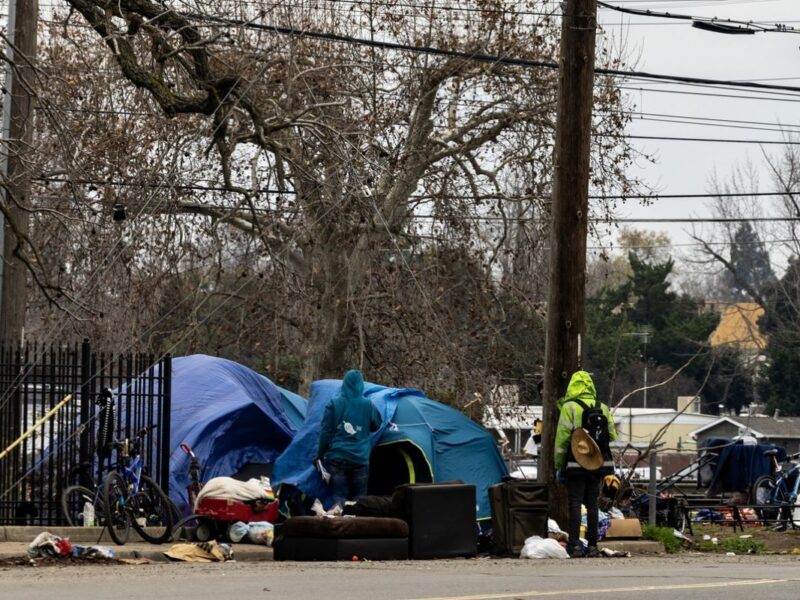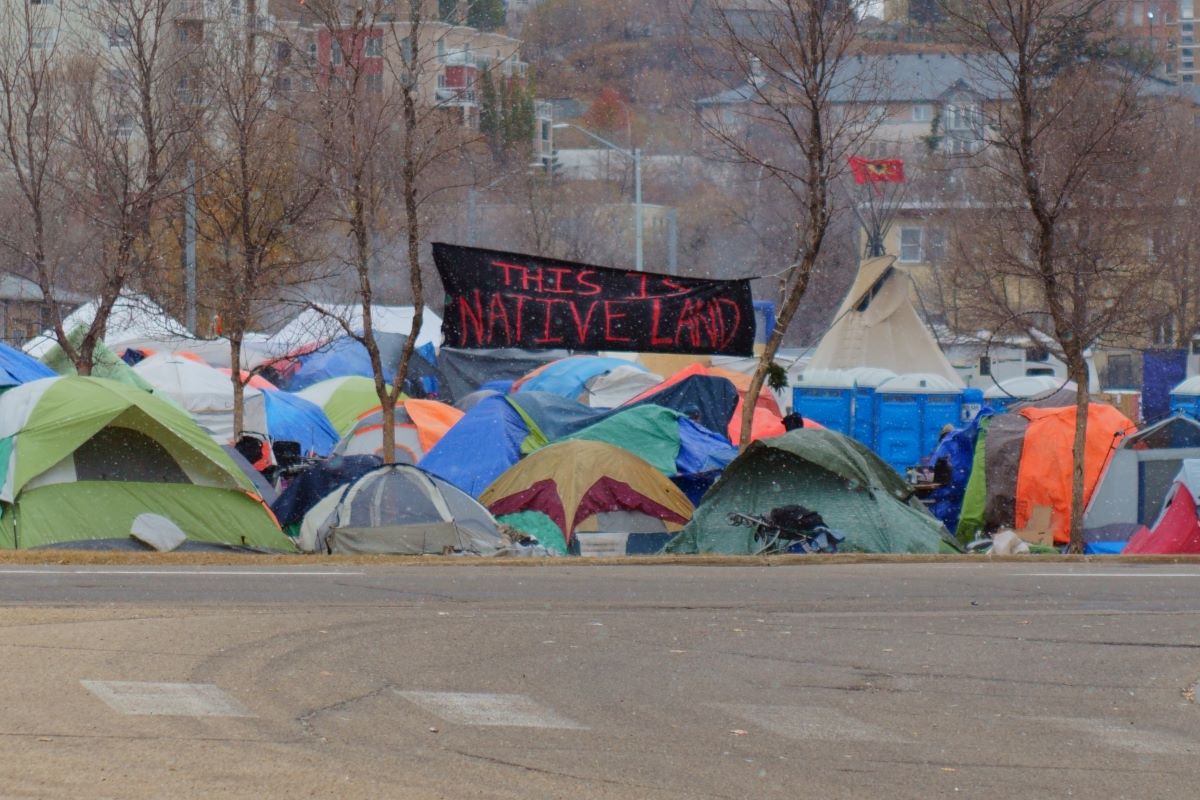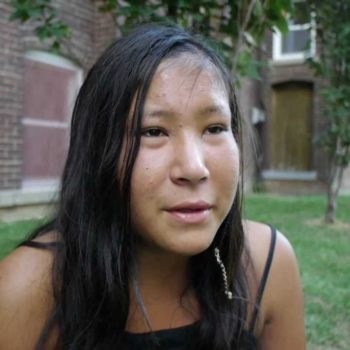Indigenous Peoples are Vastly Overrepresented in London, Ontario’s Homeless Population
The reprehensible stain of colonization appears repeatedly in London, Ontario’s landscape. Indigenous inhabitants here have endured a harrowing history of systemic oppression.
Some of the most egregious offenses enacted against this group of people who inhabited places like London for tens of thousands of years before colonial pillagers seized control include:
- Genocide
- Mass displacement
- Loss of land
- Loss of language
- Loss of culture
- Forced assimilation
- Exposure to new and deadly diseases
- Family separation and child removal
- Rampant homelessness
While issues of forced assimilation and genocide have come to light in recent years, the daunting toll of homelessness, still ever-present, has been side-swept.
Today, we hone in on the gross overrepresentation of Indigenous Peoples enduring homelessness in London with the hope that heightened awareness will lead to positive political change.
Due to Genocide, Indigenous People Today Only Account for 2.6% of London, Ontario’s Population, Yet They Represent Between 19% and 30% of the Regional Homeless Population
When a marginalized population’s representation of disadvantage is drastically higher than their representation in the general population, this is called overrepresentation.
For example, if individuals age 55 and older represent 10% of the general population but 25% of the impoverished population, they are overrepresented. Those numbers reflect a systemic disparity emblematic of a more significant social problem. This is the case for Indigenous homelessness in London and across the colonized world.
One of the most detrimental aspects of colonization is the fact that this system of oppression was designed to promote centuries of injustices against specific ethnic groups, making it difficult to acknowledge and nearly impossible to stop.
People will look at these grave injustices and quietly say to themselves, “Oh, but it happened so long ago. How could it still be affecting people today?” The answer, simply put, is that the system is working the way it was designed by functioning well into the future, blurring the lines between past and present and creating a vicious cycle of victim blaming and confusion.
Service Providers Blame Ethnic and Racial Inequities Along with Intergenerational Trauma for the Disproportionate Number of Homeless Indigenous Londoners
In an interview on the subject with the London Free Press, Jonathan Rivard, who manages a citywide homeless prevention program, cited intergenerational trauma as a leading cause of Indigenous homelessness.
“There is no single cause of homelessness,” Jonathan said. “But if I really needed to name a single driver of homelessness in Canada, I would say it’s trauma.”
Jonathan added that Indigenous locals had experienced unparalleled trauma compared to other groups and that the trauma was both current and historical, not to mention intergenerational.
Researchers from the Homeless Hub agree with this assessment, adding that historical and intergenerational trauma has had adverse consequences such as:
- Higher rates of suicide and incarceration
- Lower rates of employment, wealth, and education
Racism, oppression, and discrimination have each played a role in the widespread injustices Indigenous Peoples continue to face, from forced family separation and horrific residential schools to communal health issues of a physical, mental, and emotional nature.
As a group, Indigenous Peoples generally experience higher rates of all of the following issues that can give way to homelessness:
- Landlord discrimination
- Employment discrimination
- Social isolation
- Sub-par housing conditions and much more
While decolonizing is a lofty aspiration, reducing Indigenous homelessness is a small step in a positive direction toward that end goal. Still, experts say even that goal is not as simple as it seems.
Cultural barriers and physical barriers abound when addressing the Indigenous homeless crisis. Furthermore, many claim that viewing the problem through a Western lens won’t fully reveal the scope of the issue, as cultural practices amongst Indigenous Peoples vary, and many tie the definition of home not just to structures but also to the land itself.
As such, enlisting the aid of Indigenous elders and seeking out the advice of Indigenous homeless and formerly homeless people are vital steps in the fight to combat this crisis.
Indigenous Perspectives of Homelessness
In a brief but eye-opening interview with Homeless Hub reporters, a 53-year-old Aboriginal man named Cody described the life of hardship he led that drove him to a lifetime of homelessness.
“I am native, and my status is Oneida of the Thames,” said Cody with a broken grin.
He explained how he had technically been homeless since the age of 17, blaming much of his struggle on a ruptured family system. After being abandoned as a toddler younger than two, Cody recalls being rejected by his foster family and later the entire system. His feelings of abandonment followed him throughout his journey, which included decades of hardship and homelessness.
“I was put in a foster home which was Dutch reformed and very strict,” he said. “They didn’t give me a chance to be who I am.”
Tragically, when people pass Cody today, they don’t see a person who was failed by a system that was designed to rupture his family’s culture, traditions, and structure. They only see a man living under a bridge.
Talk to Your Representatives About Indigenous Homelessness
When Indigenous communities suffer, we all feel the strain. Fortunately, there is still a light of hope at the end of this otherwise dark tunnel.
Advocating for housing as a human right could mean the world to our unhoused neighbors, too many of whom are hailing from Indigenous roots. Take the first step in shifting legislation by talking to your representatives about Indigenous homelessness today.













